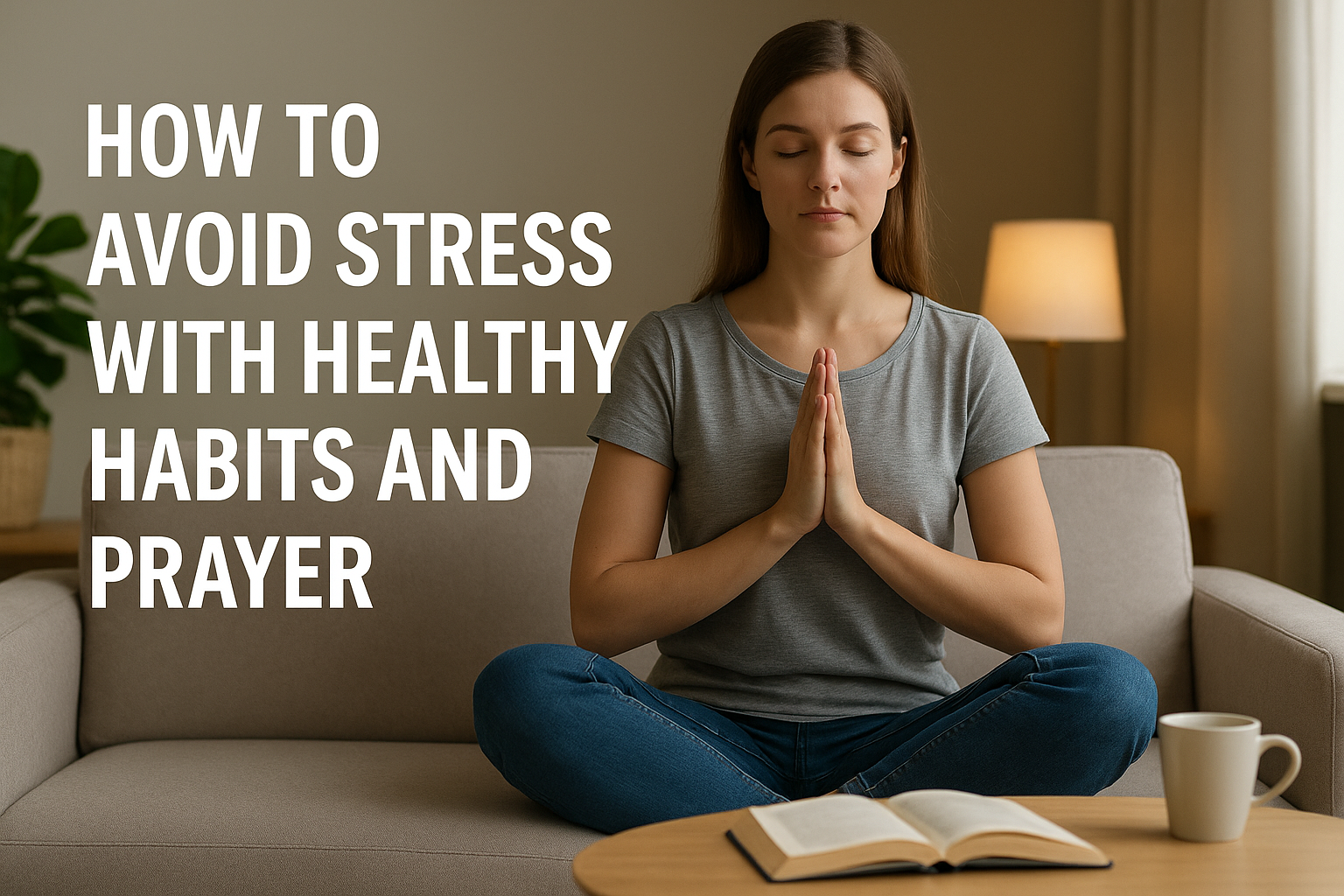Understanding the Connection Between Habits, Faith, and Stress
Stress is a natural response to challenges, but when it becomes constant, it harms our health, relationships, and spiritual well-being. By combining healthy daily habits with a consistent prayer life, you can create a strong defense against stress while keeping your mind and heart anchored in God.
Start Your Day with God’s Peace
Biblical Inspiration: “You will keep in perfect peace those whose minds are steadfast, because they trust in you.” (Isaiah 26:3)
Before you dive into your to-do list, take time to pray and read Scripture. This centers your mind and sets a calm tone for the rest of the day.
Practical Tip: Begin each morning with a 5–10 minute devotional, focusing on one verse that speaks to your current challenges.
Keep Your Body Active
Exercise doesn’t just benefit your physical health—it also reduces tension and boosts mood. Movement releases endorphins, which are natural stress-fighters.
Practical Tip: Aim for at least 20 minutes of walking, stretching, or light exercise daily.
Eat Foods That Support Calmness
What you eat affects your mental state. Diets high in processed sugar and caffeine can worsen anxiety, while balanced meals help maintain emotional stability.
Practical Tip: Include foods rich in omega-3 fatty acids, whole grains, and vegetables in your diet.
Use Prayer as a Midday Reset
Stress often builds as the day progresses. Pausing for prayer, even briefly, can reset your perspective and calm your thoughts.
Practical Tip: Set a reminder on your phone to take a “prayer break” in the afternoon.
Limit Digital Overload
Constant notifications, news, and social media can keep your nervous system in a state of alert. Creating healthy boundaries with technology helps reduce mental fatigue.
Practical Tip: Turn off non-essential notifications and set specific times to check emails and messages.
Practice Deep Breathing and Meditation on God’s Word
Slow breathing calms your body’s stress response, and meditating on Scripture brings peace to your mind.
Practical Tip: Combine deep breathing with repeating a calming verse like “Be still, and know that I am God” (Psalm 46:10).
Rest Well at Night
Lack of sleep magnifies stress and weakens resilience. Good rest allows your mind and body to recover.
Practical Tip: Create a bedtime routine that includes prayer, gratitude, and avoiding screens before sleep.
Key Takeaways
- Healthy habits and prayer work together to lower stress and strengthen resilience.
- Spiritual practices like Scripture meditation bring peace beyond human understanding.
- Consistency is more important than perfection—small daily actions create lasting calm.
With intentional habits and a prayerful heart, you can live with peace even in challenging seasons.
